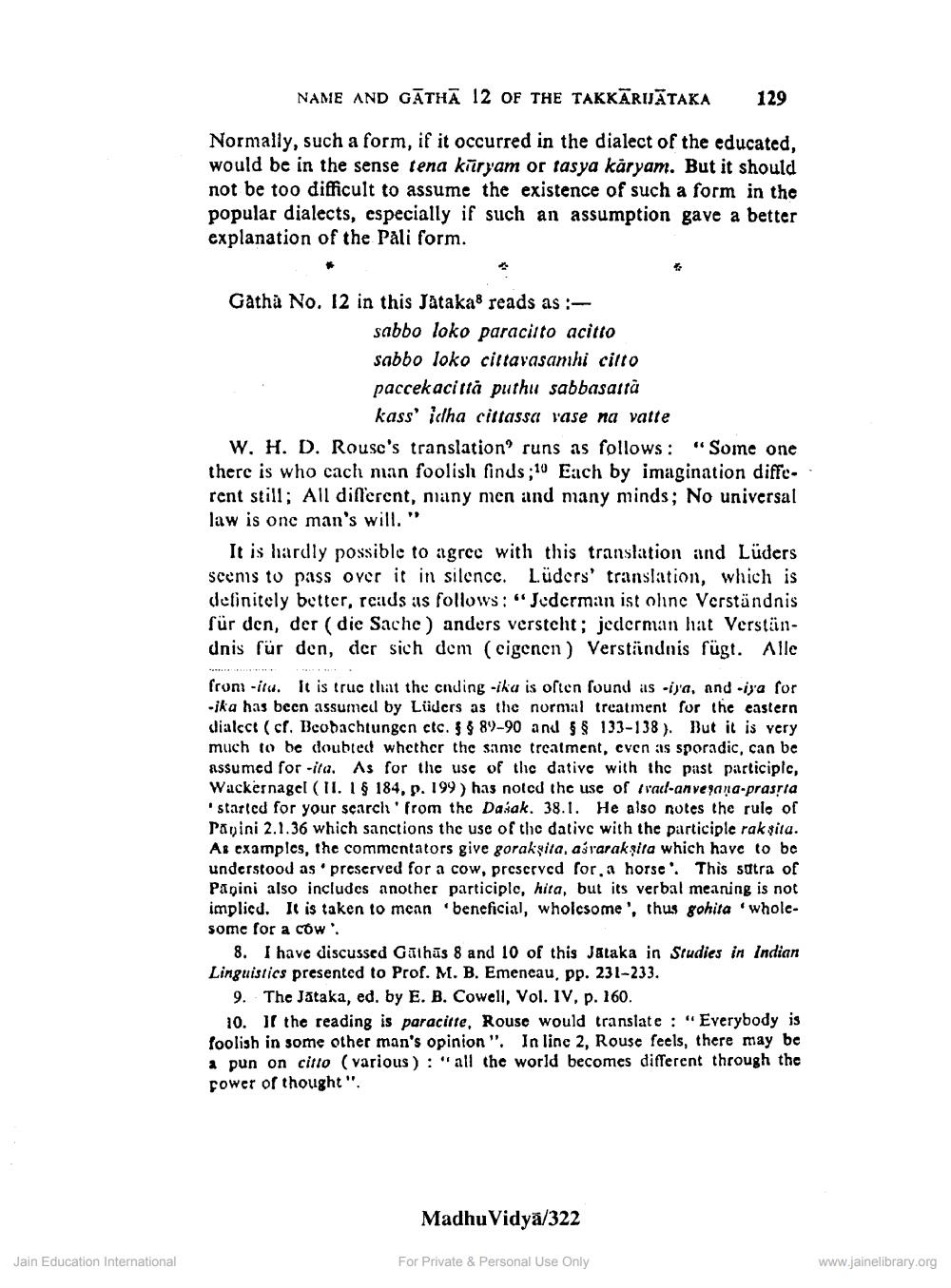________________
NAME AND GATHĀ 12 OF THE TAKKÄRUĀTAKA
129
Normally, such a form, if it occurred in the dialect of the educated, would be in the sense tena kūryam or tasya karyam. But it should not be too difficult to assume the existence of such a form in the popular dialects, especially if such an assumption gave a better explanation of the Pali form.
Gatha No. 12 in this Jatakao reads as :
sabbo loko paraciito acitto sabbo loko cittavasamhi citto paccekacittà puthu sabbasanta
kass' idha cittassa vase na vatte W. H. D. Rousc's translation' runs as follows: "Some one there is who cach man foolish finds;1o Each by imagination diffc. rent still; All different, many men and many minds; No universal law is one man's will."
It is hardly possible to agree with this translation and Lüders scenis to pass over it in silencc. Lüders' translation, which is definitely better, reads as follows: "Jederman ist ohne Verständnis für den, der die Sache) anders versteht; jederman hat Verständnis für den, der sich dem (cigenen) Verständnis fügt. Alle
fron -itu. It is true that the cnuing-ika is often found as -iya, and -iya for -jka has been assumed by Liiders as the normal treatment for the eastern dialect (cf. Beobachtungen ctc. $ $ 89-90 and $ $ 133-138 ). But it is very much to be doubted whether the same treatment, cven as sporadic, can be assumed for -ita. As for the use of the dative with the past participlc, Wackernagel (II. 1 $ 184, p. 199) has noted the use of trad-anvegana prassia
started for your search' from the Dajak. 38.1. He also notes the rule of Papini 2.1.36 which sanctions the use of thic dative with the participle rak sita. Ar examples, the commentators give gorakita, asrarak sita which have to be understood as preserved for a cow, preserved for a horse'. This sutra of Papini also includes another participle, hita, but its verbal meaning is not implied. It is taken to mean beneficial, wholesome', thus gohita wholesome for a cow
8. I have discussed Gathās 8 and 10 of this Jataka in Studies in Indian Linguistics presented to Prof. M. B. Emencau, pp. 231-233.
9. The Jataka, ed. by E. B. Cowell, Vol. IV. p. 160. 10. If the reading is paracitte, Rouse would translate : "Everybody is foolish in some other man's opinion". In line 2, Rouse feels, there may be a pun on citto (various): "all the world becomes different through the power of thought".
Madhu Vidya/322
Jain Education International
For Private & Personal Use Only
www.jainelibrary.org




